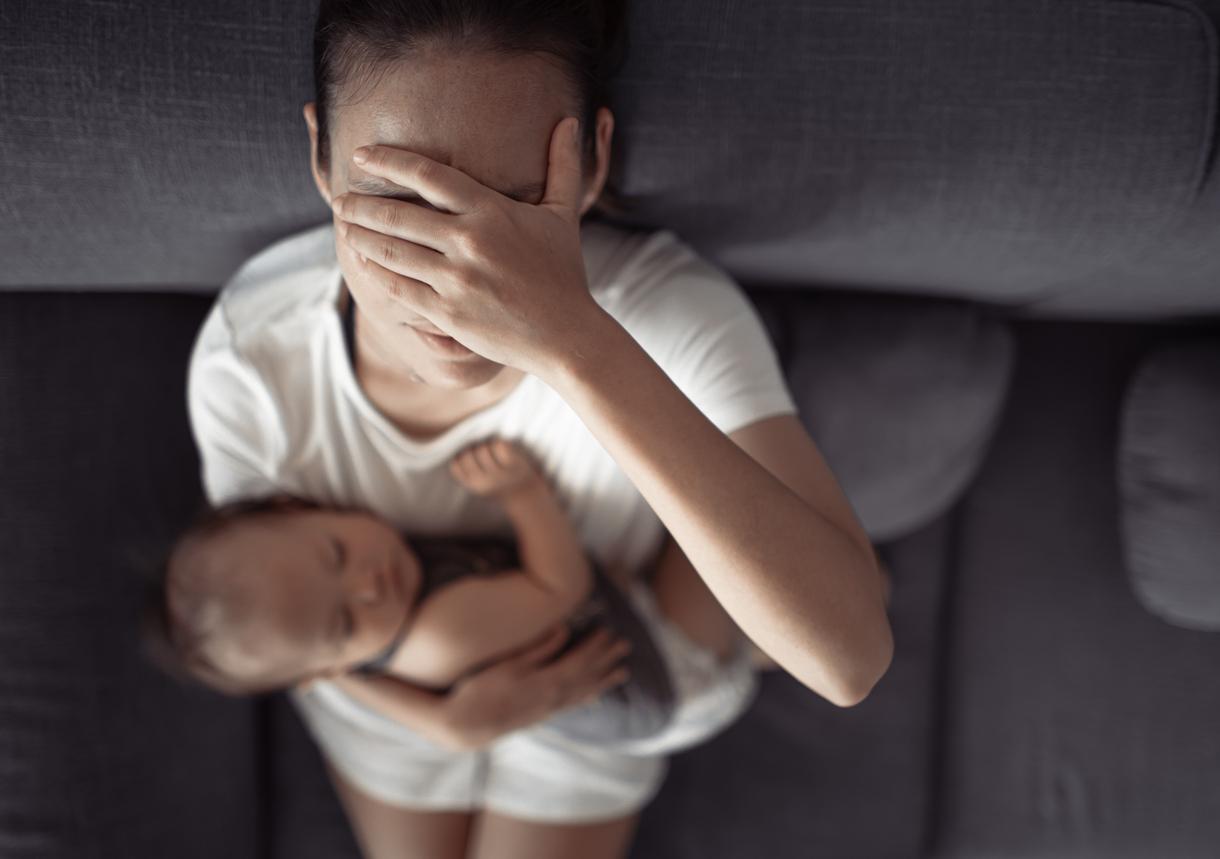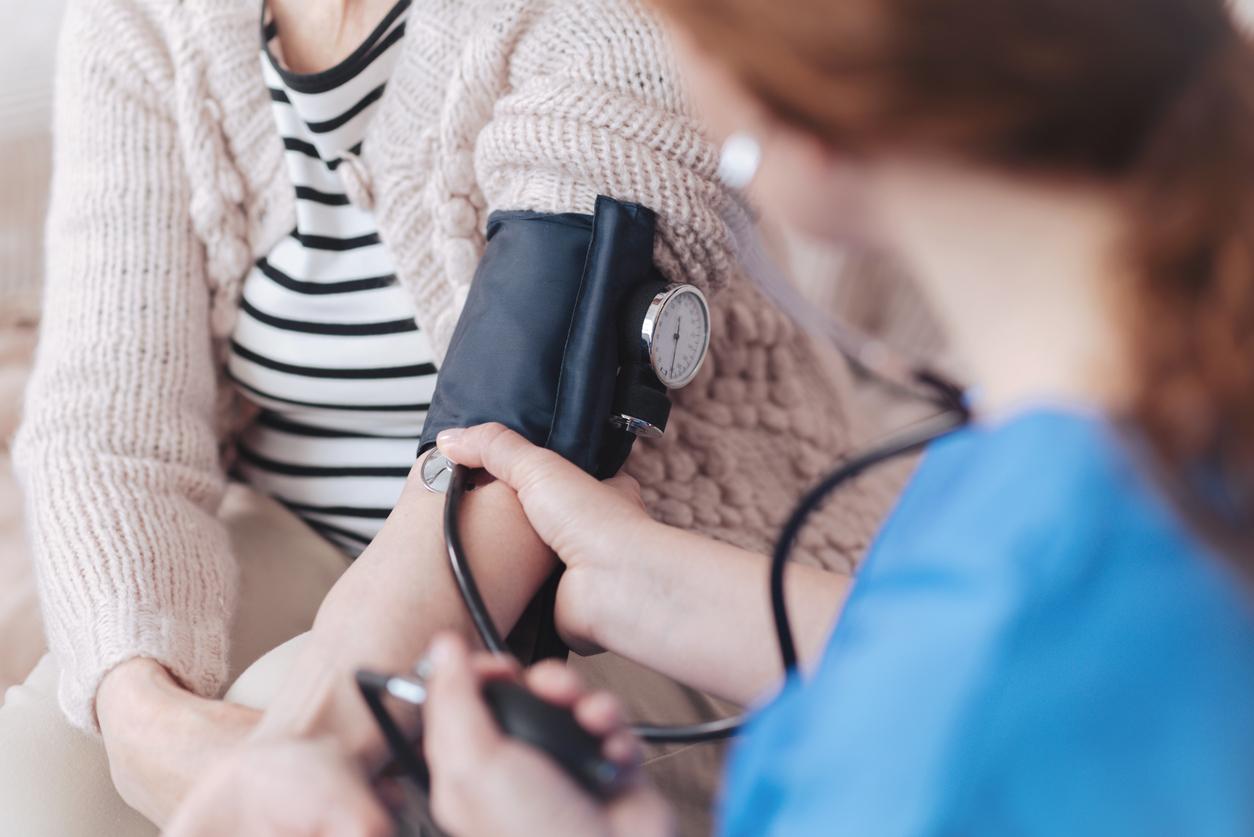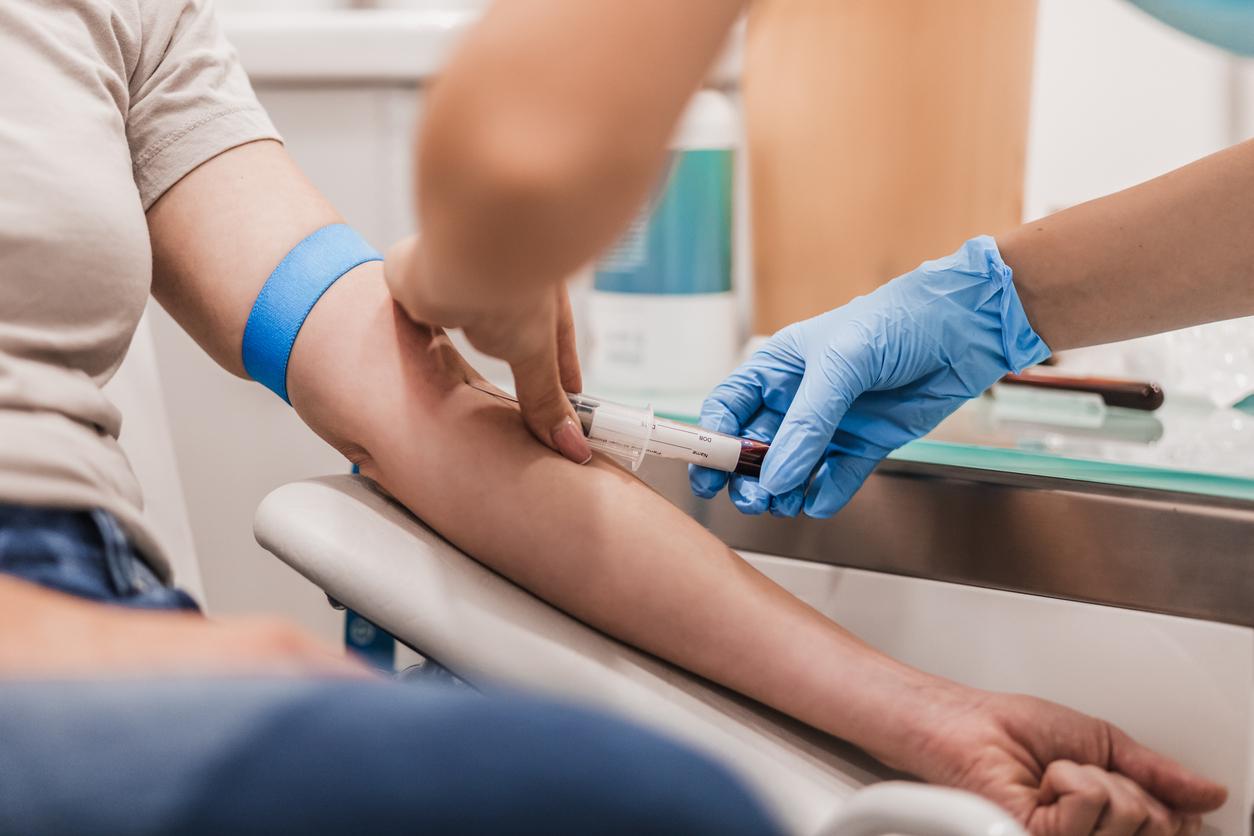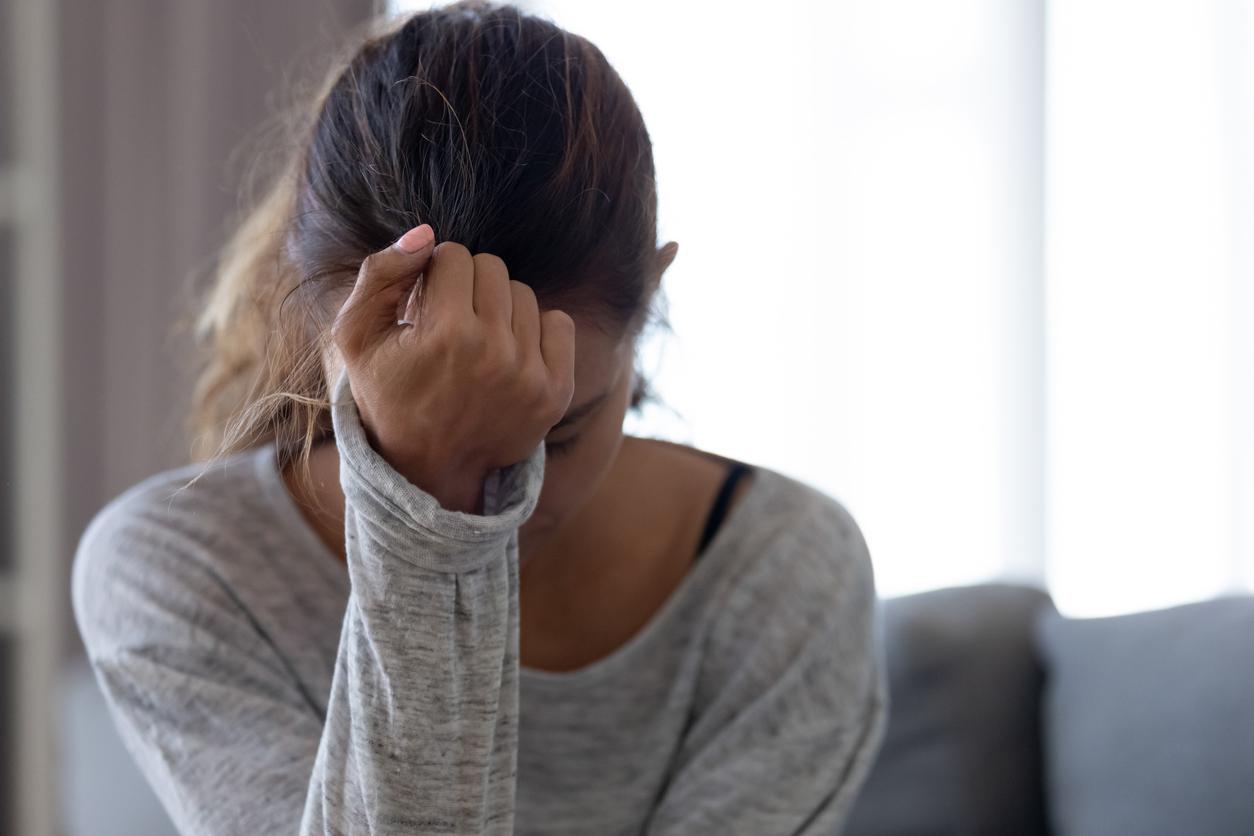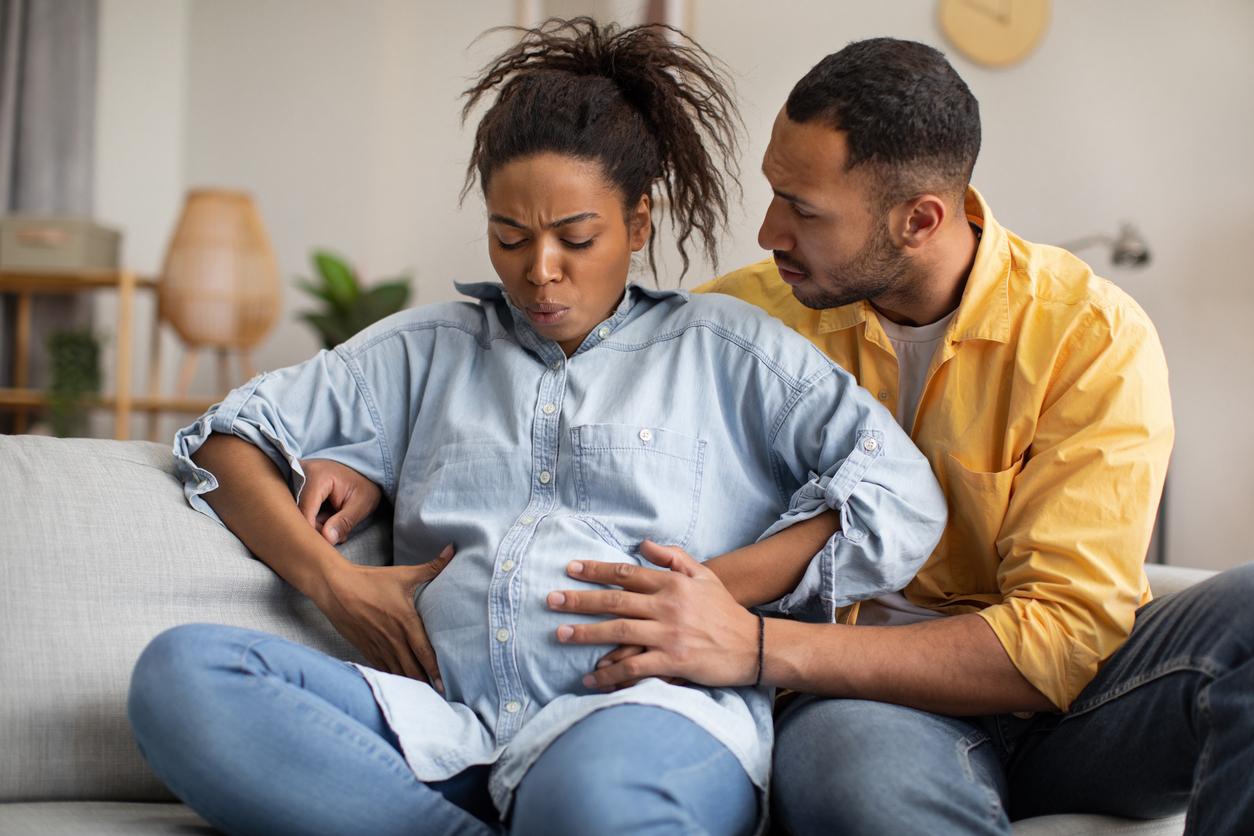Since the start of the Covid-19 epidemic, the care pathway for pregnant women has been adapted. Maternities and health professionals have had to review their reception and support arrangements, and pregnant women are faced with new protocols that change with scientific studies, government decisions and the evolution of the pandemic. So difficult for future parents to navigate.
What are the risks for pregnant women?
Transmission of the virus takes place mainly through respiratory dropletss in case of contact with an infected person. From the start of the epidemic, researchers were interested in the risks run by pregnant women but also in the risk of transmission of the virus from mother to child. In both cases, the first results seem reassuring. Rare cases of transmission from pregnant women to babies have been well documented in China, France, the United States and even Italy. But as a study published in the Lancet Infectious Diseases in May 2020, it remains unclear whether the baby was infected by its mother during pregnancy, no trace of the virus was found in the placenta or umbilical cord, or by close contact with her after childbirth. A case study published in Nature in July, on the other hand, went in the direction of materno-fetal transmission during pregnancy. Given the few documented and studied cases, scientists therefore remain cautious. The transmission is possible, but remains extremely rare.
To effectively protect her baby against Covid-19 during pregnancy, the pregnant woman – at risk or not – must first and foremost protect herself: respect for barrier gestures, frequent hand washing, wearing a mask, avoiding crowded places and limiting outings to compulsory trips. The High Authority for Health (HAS) recommends that pregnant women systematically wear a mask during consultations or care, but also when leaving their homes or when people outside the home visit them.
1st, 2nd, 3rd trimesters: how are the consultations carried out?
Since the end of confinement, some rules have been relaxed but the level of vigilance is still very high. Pregnancy monitoring will alternate between physical appointments and teleconsultations. The latter are also still widely practiced and recommended. The HAS specifies that the main part of the monitoring of the pregnancy will have to be carried out in the city and not in the hospital where only essential consultations will take place. Ideally, the ultrasounds will be coupled with the monthly follow-up appointment in order to limit the movements of the mother-to-be, and therefore the risk of contamination. The doctor, midwife or any other health professional called upon to examine the pregnant woman obviously wears a mask and the appointment takes place in strict compliance with barrier gestures. The presence of a masked attendant is now authorized. However, there are discrepancies depending on the practices and maternities, so it is essential to discuss the issue of the follow-up with your doctor from the first appointment, even if it takes place remotely.
Do I have to be masked to give birth?
The prospect of giving birth with a mask on her face has been a real source of anxiety for expectant mothers since the start of the Covid-19 pandemic. Many women have testified to truly traumatic experiences in recent months and to an obligation experienced as obstetric violence. According to the survey carried out by the collective “Stop gynecological and obstetric violence” among 2000 women who gave birth between February and May 2020, the wearing of a mask would have been imposed on 44% of them. No clear national directive has so far been communicated, so maternity hospitals make a decision on a case-by-case basis.
On November 10, the Minister of Health, Olivier Véran, ruled: “the wearing of a mask in women who give birth is desirable in the presence of caregivers but it can in no case be made compulsory. “
This follows the opinions of the Haut Conseil de Santé Publique and the French National College of Gynecologists and Obstetricians (CNGOF). The latter had published on September 30 recommendations for childbirth intended to inform health professionals but also future parents. Recommendations which try to take into account the feelings of each one. “Wearing a mask is recommended in the presence of caregivers. During expulsive efforts, wearing a mask is desirable because it protects the caregivers and the woman herself. It cannot be imposed“, explains the CNGOF in particular.” We can offer the use of a visor adapted to the face in order to facilitate efforts and communication with the healthcare team. If the patient does not have a mask or visor, the mask worn by the staff must be an FFP2 mask so as to provide maximum protection to health personnel (+ protective glasses) “, also indicates the national college of gynecologists and obstetricians French.
Can I request a telework if I am pregnant?
According to decree n ° 2020-1098 of August 29, 2020, pregnant women in the third trimester are no longer on the list of people at risk of serious forms of covid-19 and can therefore no longer, except in exceptional cases, benefit from the system of partial activity. Teleworking is however possible for pregnant women, but it is not obligatory. This means that the employer can oppose it if he considers that all the health and safety conditions are met within the company. Teleworking nevertheless remains widely encouraged, in particular in areas with high circulation of the virus, and it is therefore up to the mother-to-be to discuss the issue with her employer in order to agree with him the modalities of setting up the activity to distance.
Can I benefit from a work stoppage to protect myself from Covid-19?
To first and second trimesters of pregnancy, unless the mother-to-be has a health problem, she cannot benefit from a work stoppage for the sole purpose of protecting her from the virus. the telework, when possible, remains however recommended. The situation is different in third trimester, ie from 28NT. Given the progress of the pregnancy and the increased risk of presenting a severe form of the disease, the pregnant woman can request a sick leave if she does not have the possibility of teleworking. She has the possibility of benefiting from the self-declaration teleservice set up by the health insurance on the site https://declare.ameli.fr/ if it is an extension, or must consult her doctor for make his request.
Are group childbirth preparation classes maintained?
The question of preparation for childbirth is of great concern to expectant mothers. With the Covid-19, the course of the sessions has been adapted to minimize the risk of transmission of the virus. They are obviously maintained, but maternity hospitals and liberal midwives now favor remote or small group sessions. The procedures differ significantly from one establishment or professional to another and there is no clear directive on the matter, so it is better to get information directly from the maternity ward.
Do I have to do a PCR test if I am pregnant?
The PCR test is a nasopharyngeal diagnostic test which makes it possible to demonstrate the presence of the virus in the body at the time of the sample. It is performed with a swab that is inserted into the nostrils. Unless the pregnant woman presents signs suggestive of an infection (fever, cough, breathing difficulties, etc.), the screening test is absolutely not compulsory. From the third trimester of pregnancy, the risk of contracting a severe form increases and pregnant women should be able to access screening more easily. But faced with the daily increase in the number of tests and the difficulty for laboratories to keep up with the pace, it is possible that expectant mothers must take their troubles patiently. Another important point to remember: in the event of a scheduled birth, a test may be requested within 24-48 hours before hospitalization. The future mother must then check with her maternity to know her protocol in this matter.
I am a contact case, what should I do?
A person will generally learn that he is in contact directly by a call or an SMS from the Health Insurance which will thus inform him, this is the current procedure. We call “contact case” a person who was in “risk” contact with a person tested positive, ie: without a protective mask, in the same place of life, in direct contact within one meter , in a confined space for at least 15 minutes or face to face, when it is a question of a student and a teacher within the same class. From there, the pregnant woman will have to respect three basic guidelines: isolate yourself, get tested and monitor your health. Note that the SMS sent by the Health Insurance will allow him to be given priority to take the screening test which must be carried out 7 days after the last contact with the confirmed case in order to avoid the risk of false negative.
I have symptoms, what should I do?
If a Covid-19 infection is suspected and symptoms such as fever, cough, dyspnea, loss of taste or smell, asthenia or headache, it is important that the pregnant woman, regardless of the term of her pregnancy, quickly see a doctor who will prescribe a diagnostic test. She can also call 15 or go directly to the obstetrical emergency department of the establishment in which she is being monitored, giving prior notice of the reason for her arrival so that she can be isolated as soon as she arrives. The Haute Autorité de Santé also specifies that “any patient presenting signs of gravity, or presenting aggravating comorbidities must be taken care of in a hospital environment.”
My test is positive, what should I do?
If the test is positive and the pregnant woman is indeed a carrier of the Covid-19 virus, it is important that she get in touch with the midwife, the gynecologist or the prenatal team following her. According to the current state of knowledge, the risk of transmission of the virus to the fetus, or of severe complications for the expectant mother, is low. But the state of pregnancy still induces even more careful monitoring.
If the pregnant woman has no or few symptoms, she will have to apply the same rules as anyone else: respect strict isolation, monitor her state of health, take her temperature twice a day, and do not hesitate to contact on the 15th in the event of unusual symptoms or difficulty in breathing. If necessary, she can be placed in hospital for observation. If the pregnant woman has severe symptoms from the start, she will be treated directly in the hospital.
Also read:
- Why do we have cravings during pregnancy?
- How to relieve back pain during pregnancy?
- Bleeding During Pregnancy: Is It Serious Or Not?










